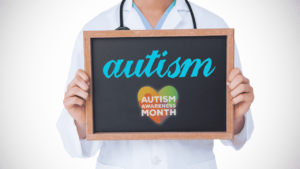When we think about trauma, we often imagine its effects on younger people—children, teens, or adults in midlife. But what about people 65 and older? The truth is trauma does not simply vanish with time. In fact, trauma among older adults is often undetected, untreated, and misunderstood.
As a clinical geropsychologist, I’ve worked with countless older adults—who’ve experienced war time trauma, childhood trauma, interpersonal violence, natural disasters, etc—who carried the invisible weight of trauma for decades. Their stories reveal both the resilience of the human spirit and the deep cost of silence.
So, why does trauma so often go untreated in older adults? Let’s explore the barriers and, more importantly, the opportunities for healing—because there is no expiration date on healing, transformation, and growth.
1. The Barrier of Silence and Stigma
One of the biggest reasons trauma goes untreated among older adults is underreporting.
Many people grew up in generations where sharing emotional pain was seen as weakness or “airing dirty laundry.” Shame, stigma, and generational silence create powerful barriers to opening up about trauma.
I often hear from family members who notice their loved one struggling with depression, anxiety, or panic attacks, yet the older adult resists therapy. Sometimes it’s because they don’t want to burden their family or expose long-held pain. Other times, when a family member is present in the therapy session, the older adult stays silent to protect both themselves and the relationship.
As clinicians, we must create safe spaces for these conversations. This often means meeting with the older adult alone, meeting with caregivers separately, and then coming together. Done well, this balance protects the therapeutic process while honoring the caregiver’s role.
2. Avoidance—From Clients and Clinicians
Avoidance is a hallmark symptom of PTSD. When someone has lived through trauma, they may avoid reminders of it—people, places, even questions. Asking, “Tell me about the traumatic events in your life” can feel unbearable for someone whose survival strategy has been to push it away.
But avoidance isn’t just on the client’s side. Clinicians may also unconsciously avoid asking older adults about trauma. This often stems from ageism—the false belief that older adults are too fragile to handle painful conversations.
Here’s the truth: as we age, we gain resilience. We develop stronger problem-solving skills and better emotional regulation. This is part of our natural maturity process as humans. Older adults are not more fragile in this regard—they are, in fact, often more equipped for deep trauma work than younger people.
When clinicians shy away from asking about trauma out of fear or discomfort, we deny older adults the chance to heal. That’s ageism in action.
3. The Myth of “It’s Too Late”
One of the most damaging myths is the belief that therapy won’t matter for older adults—that it’s “too late” to address trauma.
This couldn’t be further from the truth. I’ve witnessed remarkable transformations in people well into their 70s, 80s, and 90s. With the right support, older adults can process traumatic experiences, reduce symptoms of PTSD, depression, and anxiety, and reclaim a sense of peace.
The idea that older adults are “too fragile” or that “it won’t matter now” is a form of ageism that robs people of their right to healing. We must change this narrative.
4. The Clinician’s Role: Guiding With Steadiness and Flexibility
Working with trauma in older adults requires both steadiness and compassionate flexibility.
Sometimes family members, distressed by what they see and wanting to “make the suffering stop”, try to guide the therapeutic process. While their intentions may be loving, it’s critical that clinicians remain steady leaders in the room—directing how sessions unfold, balancing the caregiver’s role, and protecting the therapeutic space for the older adult.
This takes finesse, grace, and confidence. But when done well, it allows older adults to safely share their stories and begin their healing journey.
5. A Call to Change the Story
At the heart of this issue is a need to change how we, as a society, view aging and mental health.
Yes, as we age, physical vulnerabilities increase. But psychological strengths—resilience, wisdom, perspective—also deepen. Older adults bring decades of lived experience to therapy, and with it, incredible capacity for growth.
We must move away from viewing aging as decline and instead recognize it as an opportunity for healing. Trauma treatment is not only effective for older adults—it is essential.
Final Thoughts: Healing Has No Expiration Date
If there’s one message I want you to carry forward, it’s this:
Older adults are capable of change. Trauma treatment works. And healing has no expiration date.
Every time we ask an older client about trauma, every time we gently challenge our own ageist assumptions, every time we offer tools for healing, we’re breaking through decades of silence.
And in doing so, we give people the chance to live their later years with dignity, peace, and wholeness.
For Professionals: Your Next Step
If you’re a therapist, social worker, psychologist, counselor, or aging life care expert—this is your invitation to grow.
Explore our CEU courses and become an Aging Informed Therapist. Learn how to effectively assess trauma, engage caregivers, and deliver evidence-based care that transforms lives.
Together, we can change the story for older adults.
Because there is no expiration date on healing, transformation, or growth.
Related Resources
- Blog: Trauma and Older Adults: Acute Stress Disorder, PTSD, and Unique Considerations
- Blog:Benefits of Cultural Humility and Trauma-Informed Care With Minoritized Older Adults
- Podcast: PTSD and Trauma Informed Care with Older Adults
- Trauma Informed Care with Older Adults Certificate Course (6 CEU credits)
- Trauma-Informed Care Guide for Older Adults: Download here
- Helping Older Adults After Disasters: A Guide by SAMHSA
- Helping Older Adults Prepare for Disasters: Essential Resources & Tips
- SAMHSA Disaster Distress Helpline: 1-800-985-5990
- National Crisis Hotline for Mental Health: Call 988 (Like 9-1-1 but for mental health emergencies)




